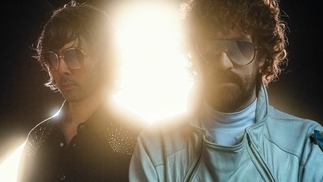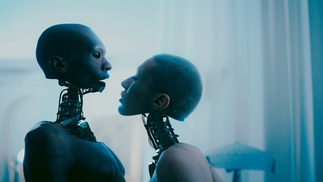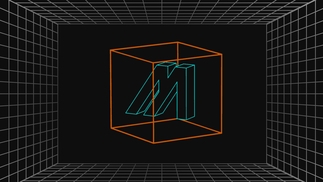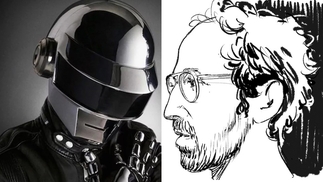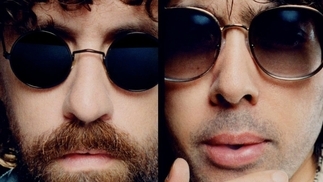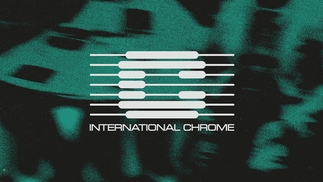IN THE STUDIO WITH... BREAKBOT
Ed Banger's newest and brightest star!
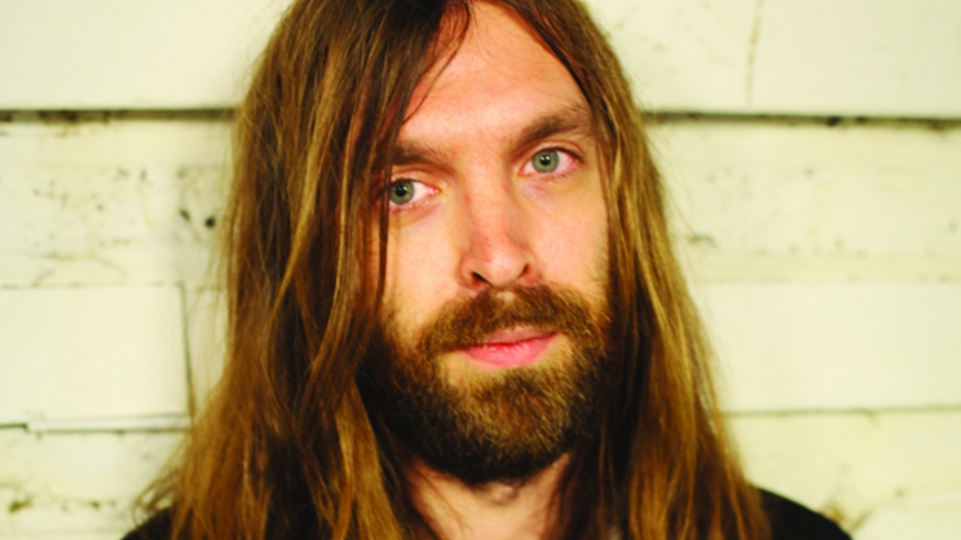
Breakbot’s music career spans an extensive list of remix credits longer than your arm, combining French flair with a discerning ear for creating well-crafted pop-style dance tracks that have a definite musical song-based architecture. This means ‘By Your Side’ as an album sits nicely on the dancefloor, but also has a radio-friendly character that makes listening to Breakbot’s long-awaited debut an aural pleasure.
It definitely raises a smile on the face as the myriad of influences wash up to the top and take the listener on a musical journey throughout some of the classic disco tracks and acts of days gone by. Moved by a simple ethic to keeping the recording process simple and letting the music do the talking, Thibaut Berland’s new long-player is a masterclass on how not to get too carried away with masses of studio production, and just let good essential sounds and techniques lead the way in the studio...
‘By Your Side’ is your new album released on Ed Banger Records. How did you go about recording the record, and what were your musical influences?
“It was a fantastic journey through love and despair, pain and joy, mistakes and redemptions. It goes from Hall & Oates to Michael Jackson, from Bobby Caldwell to Mike Post, from Chic to Justice, from disco to disco. It is home-made, naive and somewhat melancholic.”
How come it took you so long to release your debut album?
“I wasn't aware that people were expecting it, I just took my time, to be sure that I recorded the best record I could. It had to be special, I had to do my best for this chocolate record.”
Describe the style and sound of the album? It seems to draw inspiration from the disco scene of the '70/'80s...
“Yes, round and sexy! I listen to a lot of things, and I draw a lot of inspiration from the records I listen to. There are so many artists and bands that I truly love, like Michael Jackson, Prince, Pink Floyd, Queen, Supertramp, Todd Rundgren, Hall & Oates, Chic, Daft Punk, Snoop Dogg, Jay-Z, Biggie, Rza, Jackson and his Computer Band, Mr Oizo, Justice, and many more... It’s a varied selection.”
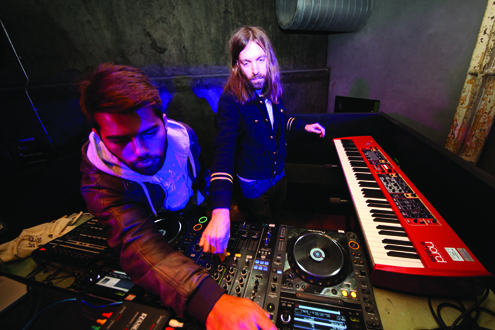
You’re currently touring the album, how will the transition from the studio to ‘live’ work?
“It's a cross-over between a DJ set and a live show. I sometimes play the piano while Irfane sings. I like to include other elements as well, there are lots of old and new tracks which I’ve remixed which are included in the show. We are also working on some video loops synced with Ableton, which provides a visual aspect to what we do.
“I like to keep things simple in the live set-up. I use a Mac with Ableton Live and a Behringer BCR2000 midi controller. I also use a Pioneer DJM mixer for EQs and effects. I use the Nord Lead keyboard to play piano and synth sounds during the set. And of course there's a mic for Irfane. It’s quite a tricky thing to do, we remix everything and try to make it sound different but still as good as if you were listening to the actual record.”
How did the relationship with Ed Banger and Irfane come about?
“It came naturally from mutual interest and friendship. I've known the Justice boys for a while, and that might have helped in the process. I met Irfane through a mutual friend, Krazy Baldhead, who had already made a song called 'Sweet Night' with him. I instantly fell in love with his voice!”
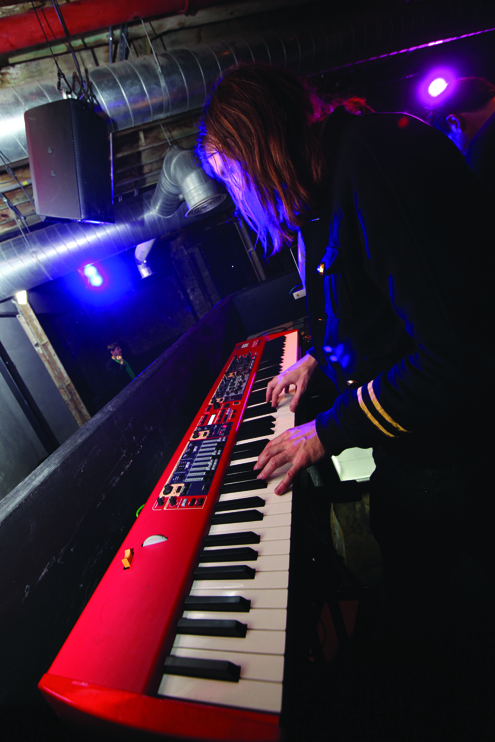
How do you work in the studio?
“The album was basically made with a laptop, Ableton Live and a midi keyboard. I usually try to find chord progressions on the keyboard, and then add layers little by little. When I'm satisfied with the music I then give it to a singer to add some vocals (Irfane did the vocals on five of the tracks for this album). At this stage this is usually the part where a simple track develops and becomes a pop song. I like to keep the studio process simple, get the music going on, then add bits when and as they are needed. I don’t want the music-making to get too complicated. I like to let the musical elements do the work, that’s why I write music the way I do. I play the piano till I have something interesting, and then build around it.”
How do you get such a polished sound from such a basic set-up?
“This is interesting you know, it's not that hard to get a good sound when you keep things simple. It's pretty easy to get a clear sound when you’re using just a few instruments on the record — you know, bass, drums, piano, voice — so I can do everything on my set-up and not have to take it to another studio to finish it off. The fact is that when I first started making music I didn’t have too much equipment and had to get use from what I had. This meant that I got to really know how to use the gear I was using and to get the best from it.”
Do you find using Ableton the key for playing live, as well as what you do in the studio?
“I use Ableton because I find it very user-friendly. The cool thing with Ableton is that you can use it for live and studio applications, it can be quite handy at times. I haven't used other software packages so can’t comment on programs like Logic or Cubase — I couldn't compare. Ableton, though, lets me just get on with things so I don’t get bogged down in the production stage.”
The album sounds as if it was recorded on a lot of old school analogue gear, not just entirely ‘in the box’ — do you buy into the whole software vs hardware argument, especially when it comes to synths and sounds?
“Of course real synths sound better than plug-ins, but it's also a 'way of life' — meaning that I see many friends addicted to hardware who spend a lot of time on eBay chasing synths and gear. It can become an obsession. I personally don't own any gear at the moment as I do everything on the computer, but I plan to buy some for my next projects and for the second album.”
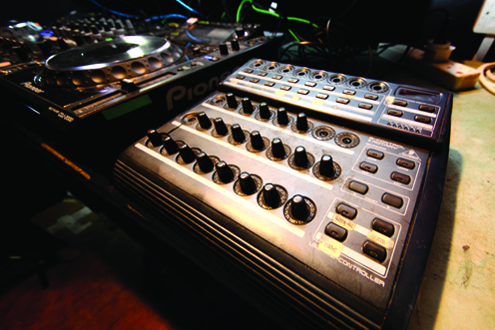
What is your essential bit of kit?
“It’s pretty basic but also very essential, the computer and CDs. I love to have an important record collection, it gives me ideas, and it is a fantastic sound-bank. I listen to a lot of things, and I draw a lot of inspiration from the records I listen to. There are so many artists and bands that I truly love. To be able to listen to good music and get inspiration from that is what helps me make my records, so of course having a source to be able to do this is very important to me.”
